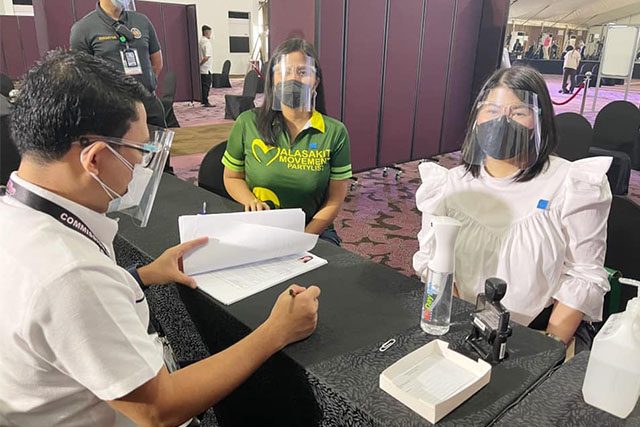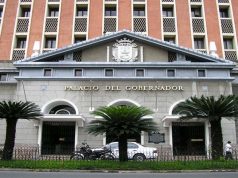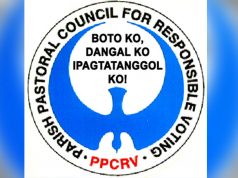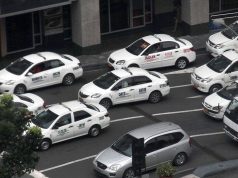
A newly-formed party-list’s qualification was questioned after its nominee said that it will represent barangay workers who are under local government units.
Former Metro Manila Development Authority spokesperson Celine Pialago filed for the Malasakit Movement party-list‘s Certificate of Nomination and Acceptance (CONA) on Wednesday.
The nominee said the party-list will represent “barangay representatives, kagawads, barangay tanod frontliners and barangay health workers.”
Pialago said that she will push for the standard benefits of barangay workers if they win a seat in the House of Representatives.
A barangay is the smallest political unit in the Philippines.
“Ito na ang tamang panahon na yung mga nagmamalasakit ay pagmalasakitan din,” she was quoted as saying during her CONA filing.
“We will also work to give better hazard benefits for medical workers. It is also important to allot a bigger fund to the Regional Epidemiology and Surveillance Unit and not have it concentrated in the Epidemiology Bureau,” Pialago also said in a statement before.
The Malasakit Movement party-list was the first to file on the sixth day of the Certificate of Candidacy and CONA Filings for the 2022 national and local elections.
The CONA filing sparked questions on what the party-list will represent.
“Barangay reps and tanod are already part of government, LGU to be exact. Eh bakit kailangan i-presenta? Literal parte na sila ng gobyerno???” a Twitter user asked in response to the party-list’s CONA filing.
LGU refers to local government unit which oversees local governance. Its officials are responsible for providing direct and basic services to people and ensuring peace and order within their communities.
“Does barangay officials belong to the marginalized or underrepresented sector under RA 7941 (Party-List System Act)? Shouldn’t her party-list be disqualified since the party is representing government officials?” another Twitter user wrote.
“People really getting creative every election on what constitutes ‘marginalized,'” seasoned journalist, executive editor and head of ABS-CBN News Digital Lynda Jumilla-Abalos commented.
“Alasakit movement. Representing officials as marginalized. Dapat DQ to for misrepresentation,” a different Filipino wrote. “DQ” stands for disqualification.
What the law states
Republic Act 7941 or the Party-list System Act notes that party-lists “enable Filipino citizens belonging to marginalized and under-represented sectors, organizations and parties, and who lack well-defined political constituencies but who could contribute to the formulation and enactment of appropriate legislation that will benefit the nation as a whole,” be represented in the Congress.
The law also states that the country must develop and guarantee “a full, free and open party system” to “attain the broadcast possible representation of party, sectoral or group interests in the House of Representatives by enhancing their chances to compete for and win seats in the legislature, and shall provide the simplest scheme possible.”
The law defines a party as a political party, a sectoral party, or a coalition of parties.
A political party is an “organized group of citizens advocating an ideology or platform, principles and policies for the general conduct of government and which, as the most immediate means of securing their adoption, regularly nominates and supports certain of its leaders and members as candidates for public office.”
A sectoral party “refers to an organized group of citizens belonging to any of the sectors enumerated in Section 5 hereof whose principal advocacy pertains to the special interest and concerns of their sector.”
The sectors enumerated in Section 5 include labor, peasant, fisherfolk, urban poor, indigenous cultural communities, elderly, handicapped, women, youth, veterans, overseas workers, and professionals.
A sectoral organization, on the other hand, refers to “a group of citizens or a coalition of groups of citizens who share similar physical attributes or characteristics, employment, interests or concerns.”
In 2013, the Supreme Court released a ruling that said party-list systems are not just limited to marginalized sectors.
“National parties or organizations and regional parties or organizations do not need to organize along sectoral lines and do not need to represent ‘any marginalized and underrepresented’ sector,” the High Court said in a decision penned by then-Justice Antonio Carpio.
The ruling upholds what the law intended party-list systems to be, which is a representation open to various groups and parties that is not exclusive to marginalized sectors.
SC also said that nominees of sectoral parties or organizations must belong to the sector they are representing or must have a track record of advocacy.
Party-list hopeful’s representation
Pialago on her Facebook post on Wednesday said that the Malasakit Movement will be the voice of social workers, those in barangays, solo parents, overseas Filipino workers and their families in the Philippines.
“We will push for standard benefits para sa barangayan, kagawads, tanod frontliners, and barangay health workers to improve their quality of living,” she also said.
“Sa tatlong taong pagiikot po ng Malasakit Movement upang mamigay ng relief at medical assistance, nakakagulat pong malaman na wala palang health benefit, walang insurance benefits ang mga frontliners na nasa grassroot level,” Pialago added.
She also said that she wants traffic constables and street sweepers to have hazard pay, saying that they are “close” to her heart, being a former MMDA official.
Pialago previously went viral for claiming that students in her school were required to join rallies for grades, which were countered by its graduates.
She was also accused of being a “racist” after she promoted a wellness center’s glutathione service with a reference to Miss Universe Canada 2021 Nova Stevens.
Last year, the former MMDA official visited the Manila Baywalk Dolomite Beach with a DENR official amid the onslaught of Typhoon Ulysses. The DENR official posted pictures captioned as “dolomite lang ang matatag.”
Both drew flak for perceived “insensitivity” to the plight of people who were affected by the tropical cyclone.
Pialago said that the post was part of the typhoon response operations of the MMDA and DENR along Roxas Boulevard.









